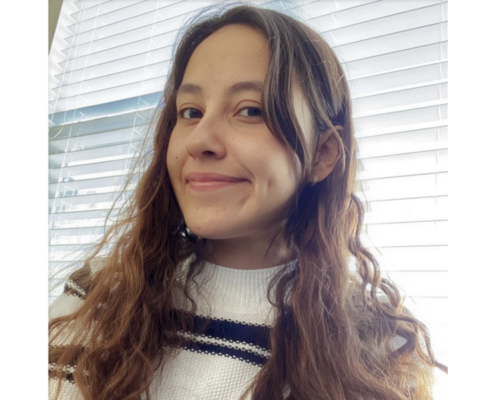
Episode 254. Meet NCAT. Luz Ballesteros Gonzalez Connects Food, Agriculture, Community, and Health
In this episode of Voices from the Field, we meet up with one of NCAT’s newest sustainable agriculture specialists, Luz Ballesteros Gonzalez. In her conversation with colleague Robert Maggiani in the NCAT Southwest Regional Office in San Antonio, Texas, Luz explains how she decided on a career in sustainable agriculture. After initially setting out to study medicine, her interests in chemistry and environmental sciences led her to see the connections between health and food, agriculture, and community.
Luz Ballesteros Gonzalez and Robert Maggiani
Luz Ballesteros Gonzalez and Robert Maggiani
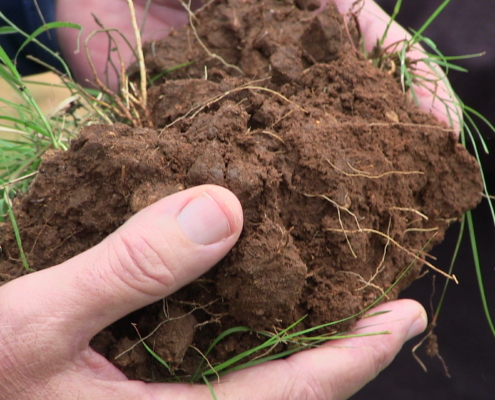
Farmers and Ranchers Are Neither the Cause Nor the Solution to Climate Disruption
The anxiety and stress farmers and ranchers face because of the consequence of climate disruption are real, but neither the causes nor significant solutions rest with farmers and ranchers. According to a new report from the Intergovernmental Panel on Climate Change (IPCC), the level of net greenhouse gas emissions (GHG) in 2019 was estimated to be 59 gigatons of carbon dioxide equivalent. A gigaton is a billion metric tons. That is a lot of extra climate-disrupting gases being released into the atmosphere of our planet every year. Unfortunately, those emissions levels are growing.
Jeff Schahczenski, NCAT Agricultural and Natural Resource Economist
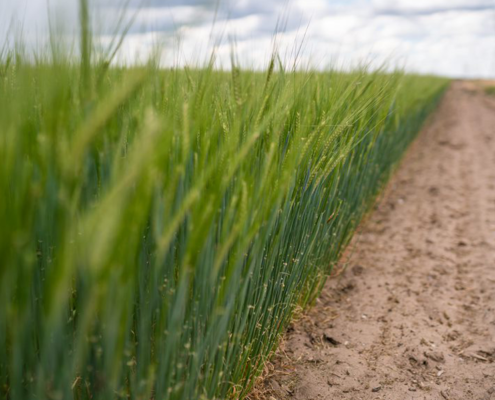
Episode 250. Practical Steps for Reducing Synthetic Fertilizer Use
For more than 35 years, the National Center for Appropriate Technology’s ATTRA Sustainable Agriculture program has been helping farmers and ranchers grow nutritious food and operate successful businesses without synthetic fertilizer. Now, NCAT has released a new toolkit with trusted and practical resources for farmers who want to transition away from the use of synthetic fertilizers.
Emilie Ritter Saunders, Nina Prater and Lee Rinehart
Emilie Ritter Saunders, Nina Prater and Lee Rinehart
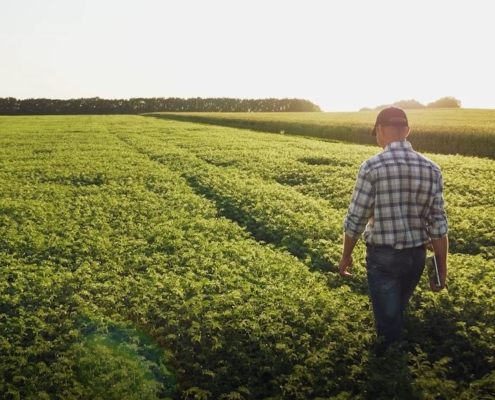
New Toolkit: How to Reduce Synthetic Fertilizer Use
For more than 35 years, the National Center for Appropriate Technology’s…
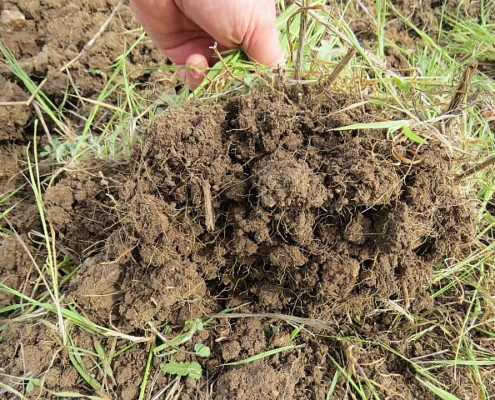
Assessing Soil Health on Grazing Lands Using a Shovel and a Knife
Did you know you can do a soil health assessment on your own pasture without having to send in soil samples to a laboratory? And this assessment costs only your time because it requires no special tools. Using the senses of sight, smell, and touch, along with very simple hand tools — a shovel and a knife — you can determine the health of the soil in your pasture in less than 30 minutes.
By Justin Morris, NCAT Regenerative Grazing Specialist
By Justin Morris, NCAT Regenerative Grazing Specialist
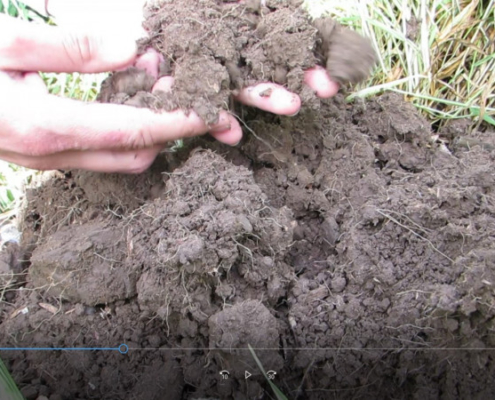
How to Assess Soil Health on Grazing Lands Using a Shovel and a Knife
In this video, NCAT Regenerative Grazing Specialist Justin Morris…
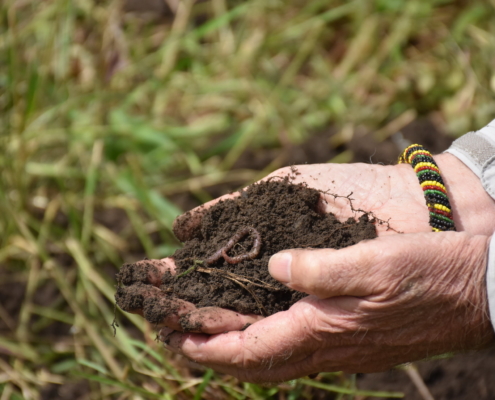 USDA NRCS
USDA NRCSWatch: NCAT Releases Soil Health 101 Series
In a new video series: Soil Health 101: Principles for Livestock…
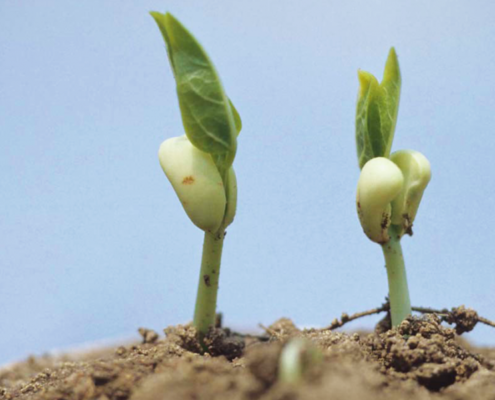
Episode 243. Cover Crops and Their Impact on Soil Health, Crop Productivity
In this episode of Voices from the Field, NCAT Sustainable Agriculture Specialist Mike Lewis is joined by Shawn Lucas, an assistant professor of organic agriculture at Kentucky State University, in a conversation about cover crops.
Mike Lewis and Shawn Lucas
Mike Lewis and Shawn Lucas

Soil Health 101: Principles for Livestock Production
In this webinar, NCAT Sustainable Agriculture Specialist Nina…
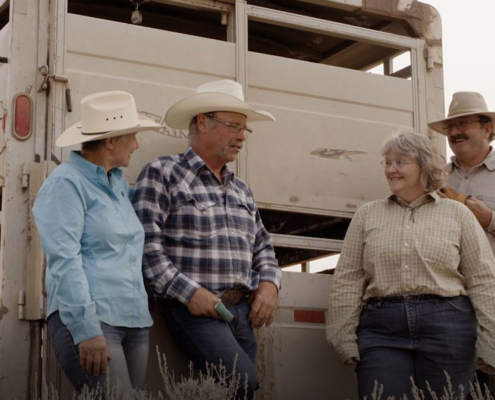
Episode 241. NCAT’s Soil for Water Project to Connect a Community of Regenerators
The National Center for Appropriate Technology has officially re-launched its Soil for Water project, opening access to the free, voluntary network to all commercial farmers, ranchers, and land managers across the United States. Soil for Water aims to connect farmers, ranchers, and land managers who are interested in land management practices that improve soil health, catch more water in soil, reduce erosion, sustain diverse plant and animal life, and filter out pollutants all while sustaining a profitable business.
NCAT Communications Director Emilie Ritter Saunders and NCAT Regenerative Grazing Specialist Linda Poole
NCAT Communications Director Emilie Ritter Saunders and NCAT Regenerative Grazing Specialist Linda Poole
Freshly Picked
- FSA and FarmRaise Introduce Tools for Accessing Programs
- USDA Partnership to Help Improve Healthy Food Access for Underserved Communities
- Local Food Promotion Program
- Episode 350. Mid-Scale Biodigester with Matt Steiman of Dickinson College
- Researchers Explore Alternatives to Antibiotics for Promoting Poultry Health
NCAT Websites
Get Help
Ask an Ag Expert
Call us: 1-800-346-9140
Visit the Forum
Don’t Miss!
National Center for Appropriate Technology
Helping people build resilient communities through local and sustainable solutions that reduce poverty, strengthen self-reliance, and protect natural resources.
